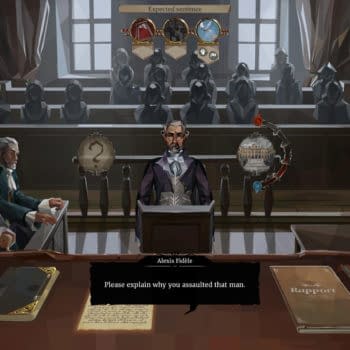Posted in: Games, Video Games | Tagged: activision, Assassin's Creed: Origins, Bungie, Call of Duty: WWII, Destiny, destiny 2, EA, Final Fantasy XIV, mass effect: andromeda, micro-transactions, Microtransactions, Middle-earth Shadow of War, Nexus TK, Ultima Online, world of warcraft
Microtransactions Are Alive And Well, And We Made It That Way
Big budget, AAA games publishers like EA and Activision absolutely love micro-transactions. And from their perspective, we can't even blame them. They're making money hand over fist and that is exactly what they want. But that's only in the short term. The micro-transaction revenues netted from Destiny 2 and Shadow of War typically end up being used to make the games a live service. You know, like an MMO subscription service game, with constant balance tweaks, bug fixes, and content updates. Sure, you end up having to pay for a decent amount of the updates as well with new map packs and major content expansions, but the $8-$10 fee for the next major update to Destiny 2 will be a lot cheaper than, say, paying $14.00 per month to keep playing Destiny 2 the way we would pre-micro-transaction.
That's the thing we all forget. In the days before micro-transactions, so, circa 2005, you bought a game and that was it. You played it. Maybe you played it a ton. But the product launched as is. And stayed that way. Internet connections and live services were still something of a PC-only thing, though there were exceptions. And any game that updated after it launched came with a monthly service fee. And that's how things were from the early days of MMOs like Ultima Online and Nexus TK on up to World of Warcraft. If you recall, WoW launched in November of 2004, during what became the slow death of subscription games.
Once micro-transactions started becoming more and more popular – the first micro-transactions hit games at about the same time that Xbox Live became something you needed as opposed to something just the hardcore gamer had – games that included micro-transactions quickly ended up earning more money than games that did not. And this didn't just affect console and PC gamers either. The micro-transaction model quickly went on to take over the mobile market as well. Mobile web analytics company Flurry reported on July 7, 2011, that based on its research, the revenue from free-to-play games had overtaken revenue from premium games that earn revenue through traditional means in Apple's App Store.
We know that micro-transactions work because people are much more willing to put down large sums of cash in small doses. It's why slot machines make casinos so much money and why every infomercial ever promises that you'll receive something incredible for just "five easy payments of $19.95" rather than tell you the item costs $100. It's a combination of two very effective compliance tactics that hinge on human psychology – the foot in the door method of marketing and the sunk costs fallacy. Basically, they can get you to spend money by first charging you a small fee – or maybe even giving you something for free- and then slowly ramp up the cost. By the time you're paying big bucks, you've hit the sunk costs fallacy where you keep paying because if you don't, you've wasted all that money you've already spent. The most exploitative games that abuse these two tactics are the free-to-play mobile titles, by the way.
So as much as we might hate micro-transactions, we've made them what they are. Sure, they're designed to try and hack our brains into doing what they want, but just about all of us are already aware of how they do that. And we still end up paying the micro-transaction fees. Because we decide that they're worth it. Just like we knew what we were doing when we knocked the premium subscription market off the table by giving more money to the freemium games.
Because, let's be real, paying $14+ a month for a subscription service makes most of us worry about our personal finances a whole lot more than adding an extra $20 onto our purchase of Shadow of War to get the Season Pass. Or maybe, if we don't want to pay for the Season Pass because of all the extra DLC it comes with that we maybe don't want (you know, like some horse armor that makes your immortal horse easy to kill), we end up paying the same amount of money in smaller portions.
And while I'd like to challenge us to put our money where are mouths are, and stop paying micro-transactions to actually get rid of them, we don't really want to be rid of them. We all appreciate the constant bug fixes, balance tweaks, and content updates for the most part. Day One patches have saved so many games that shipped absolutely broken (Mass Effect: Andromeda not withstanding). And without micro-transactions or subscriptions, we wouldn't get that.
And not one of us is willing to pay multiple game subscriptions each month. Just this fall it'd be absurd. Assassin's Creed: Origins, Call of Duty: WWII, Destiny 2, Middle-earth: Shadow of War each with a subscription fee? Oh hell no. And I say that as someone who has paid over $14 every month for over two years now to play Final Fantasy XIV, which is one of the few MMOs that still uses a subscription service. Yes, yes, I'm normally an unpaid corporate shill for that game, but I fully understand why the subscription fee puts people off that game. And I would definitely not be willing to pay that fee for any game I didn't love as much as I do FFXIV. I'm an outlier for even paying that sub to begin with.
And it isn't like micro-transactions haven't given us some incredible success stories. Destiny was basically DOA at launch for a number of reasons, but that game would not have done anywhere near as well if it weren't for the micro-transaction system that Activision ran with it. If Activision and Bungie didn't make some money off of Destiny, we would never have gotten the content expansions for it that made that game actually good. The re-launch for The Taken King was probably the best thing that could have happened to that game, even if I miss Dinklebot. Could you imagine spending the thousands of hours you ground out of that game without The Dark Below, House of Wolves, Taken King, or The Rise of Iron? And we only got those expansions because people kept playing the game thanks to the weekly Nightfall strikes, Trials of Osiris, and Iron Banner. All we would have had, in a world without micro-transactions, would have been Destiny as it launched. All 20 miserably repetitive, easy missions, complete lack of a story or plot, and the most bored voice acting I've ever witnessed. The game would have been laughed at as a poor Reach clone for years. We'd be making jokes about it to this day.
But because of the fact that micro-transactions make all games a live service, we actually got one hell of a game out of Destiny. And now we have a pretty damn good sequel.
It's time to accept that gamers, not game publishers, are the reason why micro-transactions exist. We've been living like this for over a decade, time to give up on the rose-tinted memories of the 'good old days' and learn to accept that we can't have everything. We can't have cheap games, with no micro-transactions or subscriptions, that continue to have updates pushed to them after launch. That keep having content added to give us more time with our favorite characters or give us more fun to have with friends. That system would never survive. There's a reason why those single-player, linear action games don't make as much money as the "player focused" live games. It's because of us. We won't pay more than the usual fee for a game that's a 300 hour tour-de-force and that's why deep linear games are slowly falling out of the genre. There will always be a few, but unless we change things (and I do think we should) they'll soon be a thing of the past. We made this bed, and most days we even like it. So let's all just go the fuck to sleep already.





![[REVIEW] "Gang Beasts" is Zany Party Madness](https://mlpnk72yciwc.i.optimole.com/cqhiHLc.IIZS~2ef73/w:350/h:350/q:75/rt:fill/g:ce/https://bleedingcool.com/wp-content/uploads/2019/09/gang-beasts-7-350x350.jpg)




![[REVIEW] "Divinity: Original Sin II" Definitive Edition is Almost Perfect](https://mlpnk72yciwc.i.optimole.com/cqhiHLc.IIZS~2ef73/w:350/h:350/q:75/rt:fill/g:ce/https://bleedingcool.com/wp-content/uploads/2018/08/Divinity-Original-Sin-2-Definitive-Edition-art-350x350.jpg)





